
Nataraja Guru

Showing all 10 books

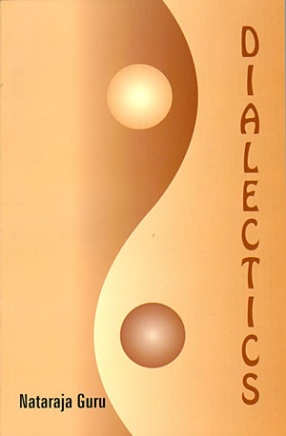
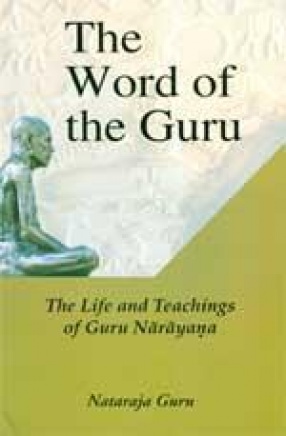




Nataraja Guru's guruhood is pure and philosophically correct, making as few concessions as possible to relativistic or social notions. He is a guru of absolutist truth. It is too rare to be popularly understood. It is not the popular conception of the Upanishadic or the ashramic pattern. It is a new form of guruhood, made for a really global world. The Guru Narayana did the initial spadework here in breaking through the fixed Indian orthodox patterns, as far ...

Dialectics is the implicit method of Upanishadic literature. It is also used as a critique for yielding a superior understanding in works like the Bhagavad Gita and the Yoga-Vasistha. In the West, dialectical methodical originated around the fifth century BCE, and has been used in varying ways by classical thinkers, later Christian theologians and modern philosophers like Kant, Fichte, Hegel, Karl Marx and Friedrich Engels. The writings of ...
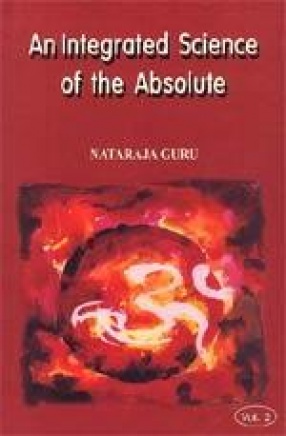
It is not just the magnum opus, but a truly monumental effort of a scientist-philosopher who has spent a whole lifetime to formulate a unitive science, wherein all disciplines of human questing could find a common ground – a science where modern science and ancient spiritual wisdom could meet and merge like two opposite poles of a magnet. As a direct disciple of one of the great rsis of the modern age, Nataraja Guru discovers this common ground in Brahma-vidya, ...

Millions of people have been deeply affected by the life and teachings of the Guru Narayana, who is the central figure of this book. This is a biography, not only of the Guru Narayana, but of Guruhood itself. Religions and philosophies have their sources in such men, and the aim here is to clarify this fact, without being sentimental or sensataional. In doing so, many hitherto baffling enigmas of Indian life are given a rational explanation for the first time. ...
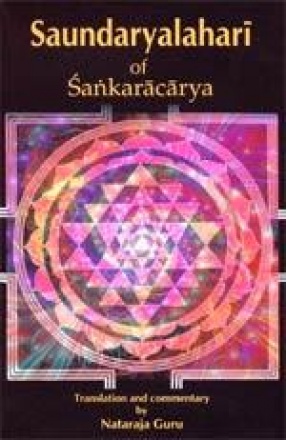
The Saundaryalahari has fascinated and puzzled generations of scholars and laypersons; subject to continuing study and debate, till today, such details as the authorship of the 100 verses named the Saundaryalahari remain a matter of contention, particularly among scholars. While some attribute it to Sankara, others argue that the Saundaryalahari's verses in praise of the Devi cannot have been authored by this staunch Vedantin; Some argue that it's value is ...

Nataraja Guru single-handedly revolutionized philosophical thought in the mid-twentieth century. At a time when science had unwittingly followed Marxism into a materialist desert, he never relinquished his insight into what had been omitted. Now that scientists and philosophers everywhere are pausing in perplexity, having bumped up against the limits of their partial outlook, the guru’s works offer to reintroduce the wisdom that can bring the desert back to ...

Indisputably one of the world’s best-known books, the Bhagavad Gita embodies the quintessence of classical Upanishadic philosophy, presented in the form of a dialogue between Krishna, the archetypal teacher, and Arjuna, the archetypal human being caught in the grip of a monumental crisis. For anyone like Arjuna who has ever paused to ponder the meaning of life, the work is as relevant today as it was when it was written. By stripping away the manifold biases ...

Is 'One World' a Utopian ideal? Or just a dream in a world which today, more than ever before, stays riven by parochial, deep-rooted barriers : nationalistic, ethnic, religious, linguistic and many other, leave alone a whole diversity of divisive 'isms'? An eminent exponent of Vedantic philosophy here examines this question afresh to suggest that the one-world dream could become a reality, if Man only learnt to cultivate the unitive vision. Essentially a vital ...

This strikingly innovative elucidation charts out the structural map of wisdom — the finalised knowledge concerning life, both in its generic and specific aspects. Nataraja Guru, the eminent contemporary thinker, handles the theme as well as the methodology in a very original way. Thematically it encom-passes the entire range of human wisdom, including epistemology, axiology, mathematics, sociology, politics and mysticism. The author presents a scheme of ...
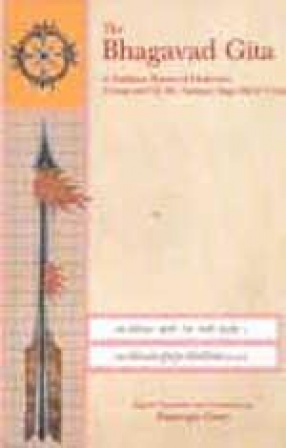
The book you hold in your hands stands by itself in the field of Bhagavad Gita commentary. Nataraja Guru has extricated the work from its historical and cultural setting to present it as it was always intended to be appreciated: as a universally applicable psychology and philosophy of life and living. This is very much in keeping with the Guru's lifelong task of revaluing and restating India's ancient wisdom heritage in terms acceptable and comprehensible to ...
